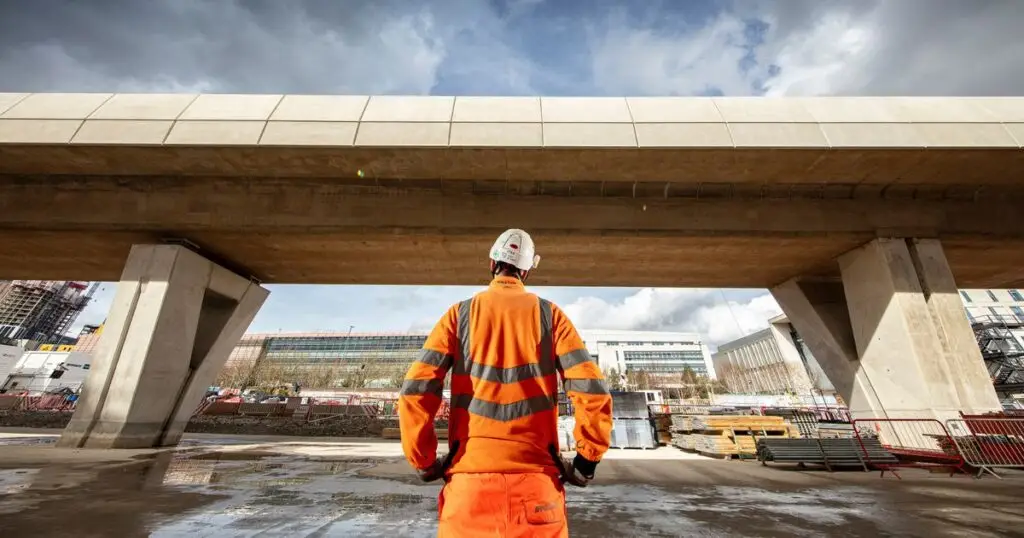The publication of a new report today stresses the urgent need for a new rail link between the West Midlands and North West to avert existing infrastructure from becoming “major barriers to economic growth”.
The report presents a proposal for a new 50-mile line, which aims to attract private sector investment and achieve nearly all the benefits of the original HS2 plan at a significantly reduced cost. This initiative is led by a consortium commissioned by West Midlands Mayor Richard Parker and Greater Manchester Mayor Andy Burnham. This follows the Government’s cancellation of phase two of HS2, which originally planned a high-speed railway line from Birmingham to Manchester city centre but now halts north of Lichfield.
This new plan suggests constructing a line between Handsacre and High Legh, approximately ten miles west of Manchester Airport, designated as the ‘Midlands-Northwest Rail Link’. By diverting some passenger services from the West Coast Main Line, the new route aims to alleviate traffic on the M6 motorway and unlock freight options, potentially adding up to £70 billion annually to the regional economies and generating up to £24 billion in tax revenue.
The report highlights the necessity for the private sector to play an essential role in delivering and financing infrastructure projects. Compiled and chaired by former HS2 chairman Sir David Higgins, the report is a collaboration among notable firms including Arup, Arcadis, Addleshaw Goddard, EY, Dragados, Mace, and Skanska. The consortium seeks inclusion of this project in next month’s Autumn Budget to initiate a feasibility study immediately. Additionally, it calls for a government-led steering group to facilitate technical analysis and further economic evaluation.
The Government is being urged to assist the private sector by maintaining current landholdings on the former phase 2A route from Handsacre to Crewe during this assessment and reinstating safeguarding for untapped land. The report also requests protection of existing planning powers and flexibility to integrate the Crewe to High Legh section into the Northern Powerhouse Rail Hybrid Bill once a final solution is agreed.
Financial estimates suggest that the new railway line can achieve approximately 85% of the benefits of the HS2 with significantly lower costs—approximately 60 to 70%. The new line is seen as the only viable option for private investment and could save taxpayers £2 billion by leveraging the work already accomplished in phase two of HS2.
Andy Burnham emphasised, “The report is clear: if we fail to put in place a plan soon to fix rail capacity and connectivity between the North and the Midlands, the already congested West Coast Main Line and M6 will become major barriers to economic growth in the UK.” He added that the proposed new line offers a viable, lower-cost alternative to HS2. “Doing nothing is not an option as demand for rail services on the West Coast Main Line is set to exceed capacity within a decade,” he stated. Richard Parker reiterated, “This report confirms what we’ve been saying—additional rail capacity to and from the North is vital for the West Midlands. It’s about more than quicker journeys; it’s about connecting people, communities, and businesses to jobs and opportunities. Without this extension, we will continue to be reliant on the West Coast Main Line which is already maxed out and impacting on the people of this region and wider.”
The report underscores the urgent need for a new rail link to bolster economic growth and connectivity between the North and the Midlands. The proposed Midlands-Northwest Rail Link, supported by private sector investment and government intervention, offers a viable alternative to the cancelled HS2 phase two, promising significant economic and infrastructural benefits at a reduced cost.

